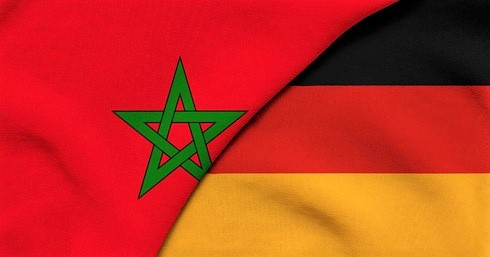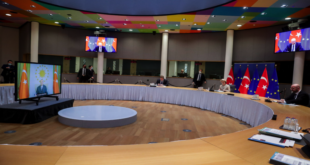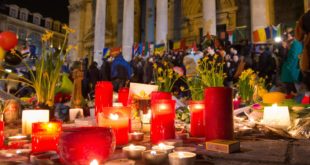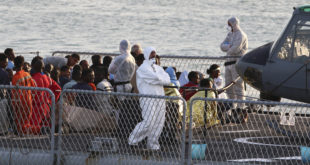Western Sahara, Libya negotiations, German organisations… the suspension of contact between Rabat and the German embassy in Morocco has been attributed to ‘an accumulation of grudges’
A diplomatic letter leaked to Moroccan media outlets has caused a stir in the country.
On Sunday, Moroccan Foreign Minister Nasser Bourita communicated in a letter to Prime Minister Saadeddine el-Othmani Rabat’s decision to “suspend all contact” with the German embassy in Morocco in the wake of “profound misunderstandings” with Berlin on various issues, including the fate of the contested Western Sahara.
All ministerial departments are required to cease all contact, interaction and action with both the German embassy in Morocco and with any associated cooperation agencies and political foundations, the official letter stated.
“The foreign affairs minister has also taken the decision to suspend all contact and activity with the embassy,” the letter continued, citing “profound misunderstandings” on “issues fundamental for Morocco”.
“Morocco wants to preserve its relationship with Germany, but this is an alarm sounding expressing unease on numerous issues,” a senior member of the Foreign Affairs Ministry confirmed to AFP on Monday evening.
“There will be no contact until such time as there are answers to the various questions that have been asked,” he stressed.
But what are these points of friction?
The German position on Western Sahara
According to a senior official at the Foreign Affairs Ministry, at the heart of these tensions is Germany’s position on Western Sahara.
Berlin – which has been “hiding behind diplomatic platitudes advocating for a ‘fair, durable political solution that works for both parties under the auspices of the United Nations” according to Moroccan site Yabiladi – has made no secret of its disapproval of former US President Donald Trump’s decision to recognise Moroccan sovereignty over Western Sahara in December, in exchange for the reestablishment of diplomatic relations between Morocco and Israel.
“Taking the lead on (resolutions on Western Sahara) comes with responsibility. It goes hand in hand with a strong commitment to resolve a problem,” German ambassador to the UN, Christoph Heusgen, said on 24 December.
“You have to be fair, you have to be impartial, you have in mind the legitimate interests of all parties and act within the framework of international law.
“The definitive solution to the problem should be sought under the auspices of the UN, in compliance with international resolutions,” he added.
While it’s no secret in diplomatic circles that Berlin is holding firm on this matter, the Moroccan news site LeDesk reported another story that can only have “greatly displeased’ Rabat”:
On 27 January, the flag of the Polisario Front was hoisted in front of the parliament in the German regional assembly in Bremen for several hours, after an appeal to the European Union and the International Red Cross Committee by the new Austrian president of the Western Sahara parliamentary intergroup in the European Parliament, Andreas Schieder, for action to be taken against Morocco’s “abuses”.
Excluded from Libya talks
Prior to this, Rabat, like Tunisia, was less than happy at its exclusion from the January 2020 Berlin international conference on Libya. Morocco had at that time officially expressed its “deep astonishment” in a Foreign Affairs Ministry press release.
“The kingdom has always been at the forefront of international efforts to solve the Libyan crisis. The kingdom understands neither the criteria nor the motivations governing the selection of the countries participating in that meeting,” the statement read, citing Germany as “this host country that, distant from the region and from the complexities of the Libyan crisis, should not transform it into an instrument for the promotion of its national interests”.
In October, however, Bourita declined an invitation from his German counterpart to a new conference linked to the United Nations General Assembly.
“This invitation is an attempt at forcible intrusion, coinciding as it does with the start of a new round of inter-Libyan dialogue in Bouznika” instigated by Morocco in September, website Le360 reported.
At the beginning of December, Bourita had remarked in a press release on the “excellent bilateral cooperation between the two countries” after a telephone meeting with Gerd Muller, Germany’s minister for economic cooperation and development.
Berlin had then just released financial support in the amount of 1.38bn euros ($1.66 billion), of which 202.6 million euros ($244m) came in the form of grants, with the remainder in the form of subsidised loans for the reform of the Moroccan financial system and urgent aid for Covid-19 countermeasures.
‘Meddling’ German foundations
Another source of tension that has been undermining relations between the two countries for several years: German political foundations.
In December 2019, a confidential Africa Intelligence letter revealed escalating tensions between Rabat and Berlin rooted in the Konrad Adenauer, Friedrich Ebert, Friedrich Naumann and Hanns Seidel foundations, disclosing that the “partnership’s negotiations for multi-sectoral reforms” had been suspended.
“This well-funded programme – 571 million euros ($687m) for the period 2020-2022 – was the object of a memorandum signed in Berlin on 29 November. The parties to this discussion were the foundations who requested specific status in Morocco, where they are classified simply as associations,” explained the letter.
But this claim, made by the German ambassador to Rabat, Gotz Schmidt-Bremme, was rejected by Interior Minister Abdelouafi Laftit and Bourita. The funding they give certain Moroccan NGOs – including the Moroccan Human Rights Association (AMDH) – constitute, according to the interior minister, acts of “interference”.
In 2015, notes LeDesk, the former director of the Friedrich Naumann foundation in Morocco, Andrea Nusse, was pushed out of Morocco, “after pressure from Moroccan authorities”, according to colleagues.
“Moroccan authorities gave her 24 hours to leave the country, her presence in Morocco no longer being advisable. This decision by the authorities would have been taken in response to the funding by the German foundation of activities deemed ‘harmful to the interests of the state,” the sources said.
The Mohamed Hajib case
Several Moroccan media sources cite another final point of disagreement: the matter of the German-Moroccan citizen Mohamed Hajib.
Originally detained in 2009 while traveling to Pakistan, Hajib was subsequently arrested in Germany and released on condition he return to Morocco, where he was sentenced to 10 years in prison – a sentence reduced two years later to five years – for “terrorism” charges.
Freed in 2017, he claimed 1.5 million euros ($1.8m) in damages from Germany, which he accused of having forced him back to Morocco in 2010, where he says he was tortured.
“I rarely sleep at night for fear of my dreams. German authorities have destroyed my life,” he told German media Der Spiegel and Tagesschau.de.
While he was serving out his sentence in Morocco, Amnesty International had urged Moroccan authorities in 2011 to investigate allegations that Hajib had been tortured and threatened with rape during his detention.
After a detailed investigation of the matter, the UN Human Rights Council concluded that Hajib’s arrest was arbitrary, and in 2012 appealed to the Moroccan government for his immediate release and compensation.
Now living in Germany, Hajib claimed in August that he had been made the object of an international arrest warrant issued by Morocco. On 8 February, he celebrated in a tweet that Interpol had withdrawn his name from its list of wanted persons, calling that decision “a heavy blow for the Moroccan police”.
_____________________________________________________
(*) This article was originally published on Middle East Eye. Read the original article. The views expressed in this article belong to the author and do not necessarily represent ForMENA
 ForMENA Council for MENA affairs
ForMENA Council for MENA affairs



